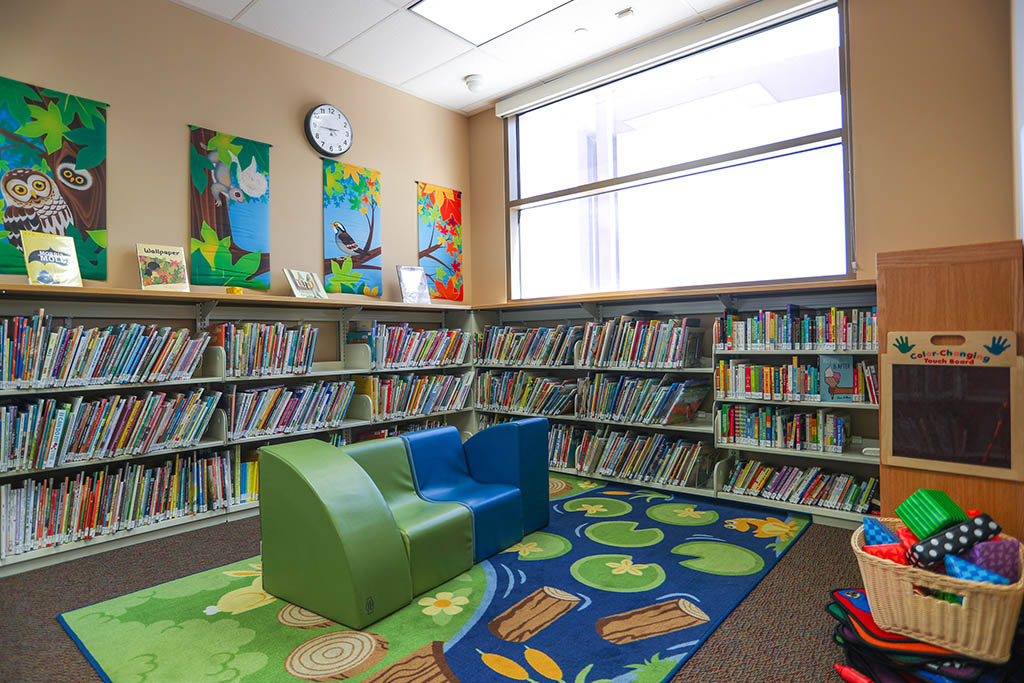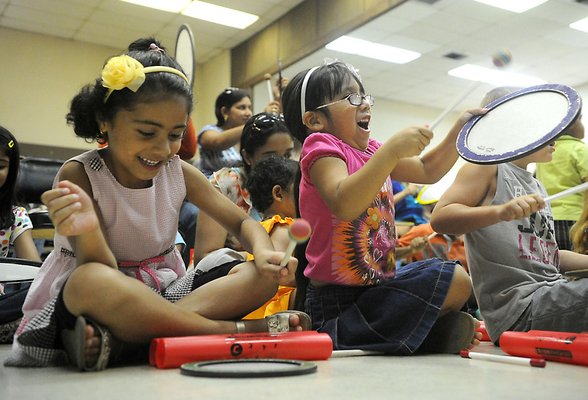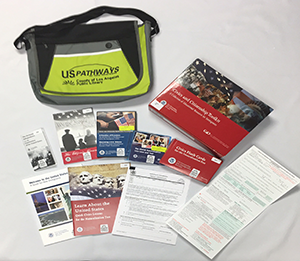Red Dust and All
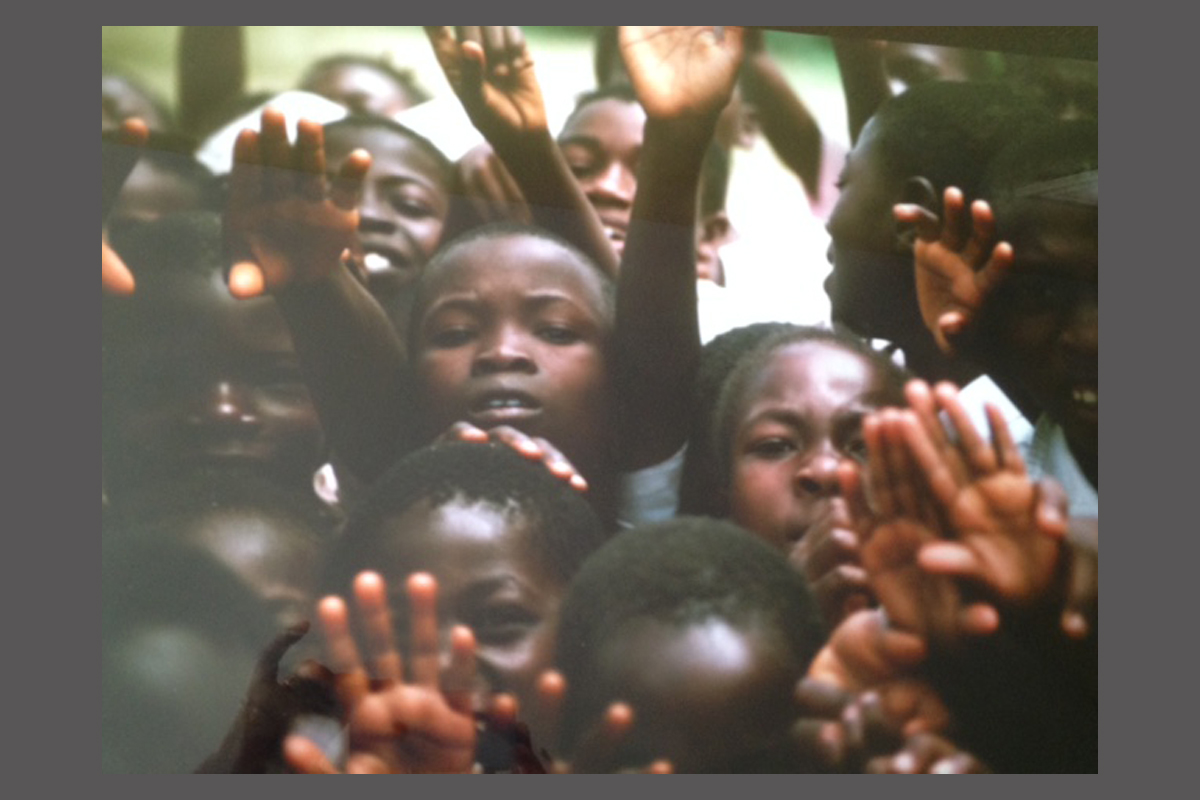
I lay in bed early one Friday morning as the radio crackled with the voice of Liberian President Samuel Doe.
“This is your President speaking. Anyone caught on the streets after 7:00pm will be executed, ” he said. “Do not challenge me. There will be consequences.”
In the Liberian capital of Monrovia, a ragged group of rebel soldiers led by General Thomas Quiwonkpa had attempted to overthrow the president. Doe himself came to power in a coup in 1980, overthrowing and executing the late President William R. Tolbert and his entire cabinet, all members of the ruling elite, who were descendants of African-American slaves returned to Africa. He easily repelled the coup and was now re-exerting control across the country.
I was a Peace Corps volunteer in Liberia. The radio broadcast repeated itself every hour. Yet despite news of the coup, I, like most people in the small town where I lived, went about my usual daily activities. That day I needed to go to the town market to shop for rice.
“Chicken, you’d better get out of my way-o!” I thought as I maneuvered my Suzuki motorcycle along the road to the market. I remembered part of my Peace Corps motorcycle training. We were told not to swerve to avoid hitting a crossing animal but to drive straight. The chickens would get out of our way.
I wanted to get some errands done ahead of an evening planned with friends. Feeling a bit reckless I didn’t wear my bright yellow motorcycle helmet the Corps issued to me for my safety, and that identified me to many residents in the Voinjama township. I didn’t know most people, but they knew me because of that helmet.
It was 1985 and I was the first African-American Peace Corps volunteer to serve in the Northern city of Voinjama, Liberia.
I felt so proud to be black here, unlike in the U.S. where my pride felt burdened with the dark history of slavery. In Liberia, not only was the President black, but so were the doctors, the teachers, the airline pilots, cabinet secretaries of state, the police. I remember crying, feeling overwhelmed at this marvel, a reality denied far too long to my family, my friends, my people back in the states. Many times here I was referred to as the “bright one” because of my light skin. I was grateful not to be called white. In America much of my existence had revolved around race, being in the minority, living with stereotyped images, always vigilant. Now, everyone looked like a reflection of me, though of a beautiful darker complexion.
Upon joining the Corps, I was given the choice of Jamaica, Haiti, Western Samoa, or Liberia. I yearned to feel the earth of the Mother Africa under my feet. Most of my early education portrayed Africa as the dark continent, home to famine, savagery, poverty, war, disease, and the uncivilized. The media and American textbooks often spoke of the place as one big country, not the continent of fifty-three countries, with hundreds of tribes.
Six other Peace Corps volunteers served with me in Voinjama. I hadn’t before considered why more young black American kids didn’t travel. I had just spent six months in India as a college graduation present to myself. My mother always called me her adventurous child, even though she wasn’t happy about my trip to South Asia. But kids from my neighborhood in Richmond, Virginia didn’t venture too far away from momma. Fear kept most close to home. Besides, going to Africa wasn’t considered “chic,” cool, or sophisticated. You didn’t see Peace Corps recruiters on black college campuses. But I wanted to see the world. I wanted to see Africa.
I traveled with no expectations, only hope. I hoped to meet freedom fighters, kings and queens, artists and African intelligentsia, griots who were keepers of the oral history that could tell the stories of mighty kingdoms. I hoped to meet herdsman working bountiful lands. I hoped to hear tribal drummers beat the news of the day. I hoped to be hugged and welcomed home. When I arrived to Liberia I kissed the ground.
Then, a few months into my stay, I got sick I was in the town of Totota for an eight-week training. Having made new friends quickly, I joined others as we ventured off down a dark road for Totota’s nightlife visiting the one bar for some spirits and dancing. Outside of the entrance a food vendor was hawking her grilled street meat, greens, and rice. Inside, I danced for hours, swaying and rocking to juju music, a synchronization of steel guitar and heavy percussions. Here the men and women like to dance close, backing away only to show off a signature move, always stepping to the beat. Some of the records would go on for five minutes or more, and you would be dripping in perspiration before exiting the dance floor. I worked up an appetite. I accepted some of the local street food offered to me. That was my first mistake. The pepper sauce on the meat was so spicy hot that I grabbed for the first glass of water offered me — second mistake. As I swallowed I knew I might be in trouble. We were told to drink only boiled and bottled water. The next day it caught up with me.
The Peace Corps training staff and fellow volunteers watched me, hoping my condition would pass quickly. It didn’t. At midnight someone decided I needed to get to a hospital. I remember laying in the back of a station wagon shaking, and praying that I wouldn’t die somewhere in the darkness. There were no street lights, no street signs and I had no idea where I was being taken. The doctor pumped me up with chloroquine, used to treat malaria. I only felt more nauseous. Needing a cure, I stuck my finger down my throat bringing the chloroquine back up and the fever broke, and I never accepted water off the street again.
Soon, though. I melted into life in Liberia.
In Voinjama, my good neighbor Sarah Ziemba kept a large vegetable garden, with cassava, collards, and peppers. She and her husband Thomas, who was much older, had six beautiful children, three girls and three boys. Often, we would sit around a fire pit between our yards sharing each others’ history. The kids always had chores, and took this time to listen in as they did laundry, washed dishes, or split more firewood. Sarah loved to talk about her dating Thomas. Their marriage wasn’t arranged. As he was much shorter, Sarah thought he was cute and needed looking after. I told stories of my family and growing up in the United States. Under the clear skies, full of stars, we would laugh into the night, sip cool beer, and slap at mosquitoes. She had the prettiest smile and wasn’t shy about the gap in her teeth. In my yard wild mango, banana, and avocado trees grew. When I went to the market I only bought a burlap sack of rice for myself and Sarah’s family, and maybe a live chicken. Sarah’s kids would kill and clean the chicken. In exchange, I paid their school tuition. We saw it as a great barter.
The market was one of my favorite places to visit, and Voinjama was a busy crossroads town where vendors traveled weekly to peddle their goods. The market was run by women who brought in their wares from surrounding villages and bustled with people carrying the goods atop their heads, on their backs, in wheelbarrows, or in large reusable plastic bags.
The market also served as the bus depot. The bus service was called the “money van” or the “money bus.” Five to ten vans at a time would sit idle until they were full to capacity with passengers. These vehicles were mostly beat up old vans or pick up trucks with two benches in the back. I often rode one or the other, packed in with fellow passengers. Some passengers carried a live chicken, duck or other animal. I remember once hitting a squirrel along the trip. The driver pulled over, jumped out of the van, picked up the dead animal and threw it back inside the van.
“That will be dinner-o,” he said, laughing.
You rode these vans at your own risk. Often they would break down on the side of the rode. I sometimes waited hours for the drivers to figure out how to get us going again. A hammer was in every van. It always did the trick.
Motorcycles with their whining engines narrowly missed me on this afternoon as I walked through the market. I stopped at a stall to finger the goods spread about. I gently touched fabrics that I might consider taking to my local tailor, who could sew any design simply by looking at a magazine picture. I didn’t need any of the cheap Chinese plastic plates or slippers, but I loved the large handmade calabash bowls, and the colorful beaded jewelry.
Children too young to be in school ran through the market, always in sight of watchful mothers. There was lots of laughter, and conversation that sometimes turned into palava if there was an argument between the women.
“This is my stall-o.”
“Eh, no I always be at this place-o.”
“No way-o. I sit myself and this here child every week-o.”
“Hmmn, maybe mine is the next one-one.”
“Yes, my sistah, maybe so.”
These palavas could go for twenty minutes or more. Each person determined to get her point across. They could get heated but almost always ended with a hug and a smile.
The rhythms of the language changed as I made my way around the many stalls. There were several different tribes in the area, each with a different song in their voice. Mandingo women, tall, proud with history traced to one of the greatest West African empires of Mali, the Malinke Empire of the 14th century that included the cities of Timbuktu, Djenne, Gao, and Agadez. The Mandingos were known for their trading skills. There were the Loma women, the Mende tribes women, and the Kpelle tribal women, who brought in the most rice, peanuts, and kola nuts. Each group of women had their own head ties, the waist wraps, and jewelry. Their clothing dyed with bright yellows, greens, blues, all with printed markings that represented either village life, family, or a harvest. The market women stayed from sunrise to sunset. Young babies were often strapped around the mother’s back so that mom could still sift rice, lift yams, bundle greens, and exchange monies. A make-shift grill was always smoking carrying the smells market meats, and a radio in the distance could always be heard playing music.
Taking a break I sat just outside a stall run by a Mandingo woman named Fatima.
“Fatima, what news-o?” I ask.
“Ah my sister they come to buy but spend no money-o,” Fatima laughed.
I cracked open peanuts dropping a mound of shells at my feet, and listened. Fatima loved to barter with customers, knowing when to turn her back in disapproval, or clapping her hands if the customer started to make sense again.
“That one very good quality-o. Cost more.”
The longer the negotiations the more respect she had for the customer. The prices would start high but after several hand claps, teeth sucking, and shaking of the head a price was settled. Fatima would reach into her bosom or hip purse to make change and seal the deal. I knew how it would end but it was like watching live theatre, and I learned not to get cheated.
Every Friday night the other six other volunteers in town met for a games- night and to eat spaghetti for dinner. I didn’t go all the way to Africa to eat pasta and play Scrabble with white people. I had made plans to play a few rounds of cards, share some liquid spirits with friends outside of town, and then head over to the one nightclub in town run by an expatriate who was also an African-American, from Ohio. On this night, as I set off, the mood felt eerie. Soldiers were all over town.
Without my helmet and goggles, I squinted against the dust storms created by passing automobiles. It was the dry season. I arrived at my friends’ home with my afro turned a blondish red, and my eye lids, nostrils and clothes covered in dust.
Kabbah was my Liberian counterpart, who worked along side me producing radio programming. He had become more like a brother to me and often welcomed me to his home, where he lived with his wife Irene, daughter Feelings, and his son, Darling Boy. When I first visited Voinjama for a week during my training, Kabbah walked miles on the dusty roads helping me find a comfortable home to rent. He took me around town introducing me to government agency directors, teachers, tribal elders, the Lebanese merchants who also served as small bankers, and anyone else he thought worthy.
“This the new Peace Corps. She’s going to be working at the radio station, and I want you to welcome her properly,” he would say.
His house was already full of friends gathered to participate in card games. During the card games loud trash talking would set the tone of the evening.
“I’m the best in the land-o, so be ready to get shamed.”
The kitchen was outside in the back of the house where on the stoves cooking were pots of cassava, pepper soup, fufu, my favorite, or some other West African delicacy to later be served with rice, plantain, avocado and, or chicken, beef or fish. In the background the radio played the latest music, struggling to be heard above conversations.
Occasionally we thought we heard a news report about what was happening in the capital but it was just the looped curfew warnings from Doe. We were upcountry in the bush many miles from Monrovia. The borders had been closed with neighboring Guinea, Sierra Leone, and the Ivory Coast. While the military was mobilizing around the country, we still had a card game to play.
Seated around the table were Kabbah, Irene, Captain, who was a military man himself and dressed in his army uniform, and me. Every time Captain, my partner, was about to win a hand, he would raise his cards high for effect and then slam them down hard. Each time the glasses spilled beer.. We reach across the table to give each other high-fives, and talk smack.
“I think there’s a new sheriff in town.”
Other people drifted in and out, sometimes blurting out what cards we were holding in our hand, only to be met with idle threats from the four of us. A single incandescent light bulb hung from the ceiling on a long cord directly above the table. Food aromas wafted through the thick cigarette smoke.
Somewhere around 9 o’clock the beer was running low, tummies were full, and I had laughed myself out. As I said my good-byes and gave hugs around, Captain announced he was leaving as well. He needed to go check-in on his fellow soldiers for the night. As he lingered talking with Kabbah, I headed home. I’d had too much beer and not being a smoker, the cigarette smoke had given me a headache. It was then that I wished I’d had that big bright helmet.
I had traveled this route home many times. I knew the bumps, holes, and rocks in the road. If I had an accident, I probably wouldn’t be found till the next morning. That idea frightened me more than the actual ride alone in the dark.
I headed to the center of town about two miles from Kabbah’s home. As I climbed up the steep hill I saw bright lights ahead. Street vendors were often out at night hoping to make a little extra money before going home, but this light was brighter than usual. I drove on through the swirling dust and clusters of flying insects.
It came up fast, a checkpoint with several soldiers. They had blocked the road with sand bags, oil barrels and a long pole. They drew guns as I approached. Everything seemed to happen in slow motion as I crested the hill. One soldier raised his AK-47 and pointed at me. My hands went up, and somehow I kept my balance on the motorbike. With a deep breath I recovered my senses, bringing my hands down and bringing the bike to a stop. The soldiers all started screaming at me.
“Who are you?”
“Where are you coming from?”
“Where are you going, out after curfew?”
They trained their guns on me.
“I just now leaving party-o, and going to my home,” I said.
The soldiers scoffed. I had been stopped before at checkpoints so I knew to keep my composure. I didn’t have any money on me. Just then, another motorcycle came over the hill, horn blaring. Captain! This was probably the first time I ever said, “Thank you Jesus.” He arrived in a swirl of dust. The soldiers were speaking in the Loma tribal language, and going in and out of Liberian English. The soldier with the gun pointed at my head told Captain I was “CIA.” I laughed nervously.
Captain shook his head. “You made big mistake-o. I know this one here.”
Deflated, the soldiers lowered their weapons and went back to their beer and cigarettes. Captain escorted me the rest of the way. Along the way home that night, I saw every bug, every bush and every dust particle, and I noticed that for some reason the road now seemed completely illuminated.
I would spend another year in Liberia and in that time I learned not to try to change her, but to embrace her, red dust and all.
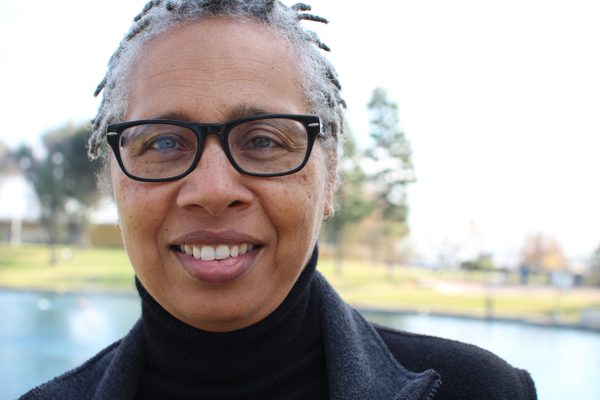
January 13, 2016








